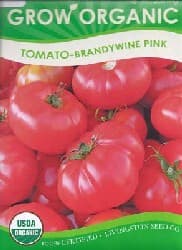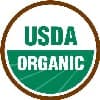Organic Gardening in Home Gardens

Home Organic Gardening
Home organic gardening is taking root and growing. The reason for the increase in popularity is plain and simple. Consider the fact that more and more people are trying to be health-conscious. They do it for their health, their family’s health, and for a healthier environment. Indeed, people care about what they eat, and what they feed to their families. And, why not!?. We are constantly bombarded with unhealthy, and even outright dangerous substances and chemicals in and on the foods we consume. So, if you are a home gardener it makes perfect sense to turn for you to become an organic gardener. Moreover, it is a means to ensure only healthy fruits, vegetables and herbs reach your dinner table.
Whether we know it or not, many home gardeners already practice some form of organic gardening. We just don’t give it any conscious thought. But try as we might, we’re probably not strictly following complete organic gardening practices and techniques.
Definition of Organic Gardening
Organic gardening is the practice of growing vegetables, herbs, and fruits using only things found in nature. Absolutely no man-made chemicals are used. Although we usually do not think of it, organic gardening concepts can be applied when tending to any type of plant. For example, we can use them on flowers, trees, shrubs, houseplants, and even your lawn. It is the practice of growing things without harmful and artificial chemicals and using only products naturally found in nature.
To produce organic vegetables requires some thought. It begins with what is in the soil in your garden, and the type of seeds you use. Impurities may already be in the soil. If you are not using certified organic garden seeds, then, chemicals used on the parent plants may be found in the seeds. Or those chemicals may have altered the seeds as they were formed. Commonly today, potentially harmful chemicals and non-natural products are used for fertilizing, insect, and disease control. Harmful chemicals are used in weed control, too. Those can be among the nastiest of chemicals. Consequently, if you are not using natural or certified organic fertilizers, disease control products, and insect repellents, then you are not producing an organic crop.
Did you Know? In the United States, organic food sales are over $60 billion annually! It represents 6% of total food sales and growing. It’s no small, cottage industry.
If you are not completely sold on organic gardening, you can still bring some of the benefits to you, your family, and the environment. Apply organic gardening concepts and techniques that work best for you and your home garden. Any organic practices that you decide to use, will benefit you and the environment.
Certified Organic Fruits and Vegetables

In order for produce in the marketplace to have this certification, the crops must be grown under strict USDA guidelines. For example, everything from the seed to fertilizers and soil must be natural ingredients. Federal inspectors review certification applications and perform inspections. See the path of organic produce takes to reach your dinner table.
Organic Gardening Components and Techniques
Learn how to grow organically. Your organic gardening program consists of:
Garden seeds – For organically grown gardens, organic seeds are the all-important starting point. While we most often think of organic vegetable seeds, organic herb seeds are also readily available.
Varieties of organic garden seeds – See what’s available.
Beneficial Insects – Certainly, let the good insects go after the bad ones.
Companion Plants – Some plants provide insect and pest protection or nutrients to other plants.
Composting – Why buy fertilizer!? Indeed, nothing beats natural compost.
Compost Tea – Feed your plants with free liquid fertilizer.
Cornmeal – Pre-emergence weed control. It controls ants, too.
Deer Repellent – Deters deer and other foraging animals.
Disease control – Chemical disease control is not good for you, your family, or the environment. There are alternatives.
Epsom Salt – A naturally occurring plant supplement
Fertilizers – Add only organic compost, manure, mulch, fish emulsion, seaweed fertilizers, and other organic fertilizers.
Garden soil and soil amendments – Your garden soil should be virgin soil that has never seen harmful chemicals.
Homemade Organic Spray Recipes – see our homemade recipes.
Insect repellents/insect control – There’s a whole lot of harmful insecticides out there. Learn about effective organic insect controls.
Lawn Grass Clippings – Makes great organic compost, if untreated
Organic Manure Tea -Feed your plants organically.
Vermicomposting or Worm Composting – Worms have been making natural fertilizer since the beginning of time.
Organic News:
The USDA has standardized rules for Organic food.
The USDA uniform standards provide:
A single national standard replacing individual state and private standards
Consistent and accurate labeling to alleviate consumer confusion
Define uniform practices, methods, and substances for producing crops organically.
Prohibits the use of genetic engineering, irradiation, and sewage sludge.
Improve exports through a single standard that is more readily understood in other countries.
For more information, see the USDA’s pages on the National Organic Program
Organic Gardening Tips
** Place fruits like pumpkin and squash on a bed of sand. Snails and slugs do not like sand and will not cross over it. You will not need to use slug and snail poisons.
** Use a composter to make your own organic compost to feed your plants.
** Use Companion plants that repel insects. See Companion Plants
The major benefits of organic gardening are many:
Less harmful chemicals on the food you and your family may eat. This is reason enough.
Less harm to the environment
Cost savings as alternate sources can save you money
You will feel better knowing you are doing your part.
Ways We Practice Organic Gardening Today:
Organic Gardening takes many forms. It includes:
- Use compost for mulch and fertilizer in your garden.
- Use only plant matter for mulching…..no plastics. Leaves and straw work great.
- Use manures for fertilizer in place of chemical fertilizer.
- Learn and apply proper techniques to grow healthy plants and avoid plant disease.
- Acquiring natural insect enemies to control insect infestations. For example, try Ladybugs for aphids and preying mantis.
- Using natural insecticides and deterrents such as garlic or soap sprays to deter insects.
- Use a little extra muscle power to control weeds, versus using weed killer.
- A willingness to give up a little portion of your crop to the bugs to produce and consume healthier food for you and your family.
- Conserve and recycle. Use natural materials like manure, composted weeds, and kitchen scraps. This reduces what goes into the waste stream.
RelatedTopics
Organic Wheatgrass Juice Recipe
Composting – Comprehensive information, dozens of pages.
Please support our site. Shop for:
- rmmatthews100@hotmail.com
- 585-721-6528
- Rochester, NY
©1999-2024 GardenersNet.Com, All Rights Reserved

